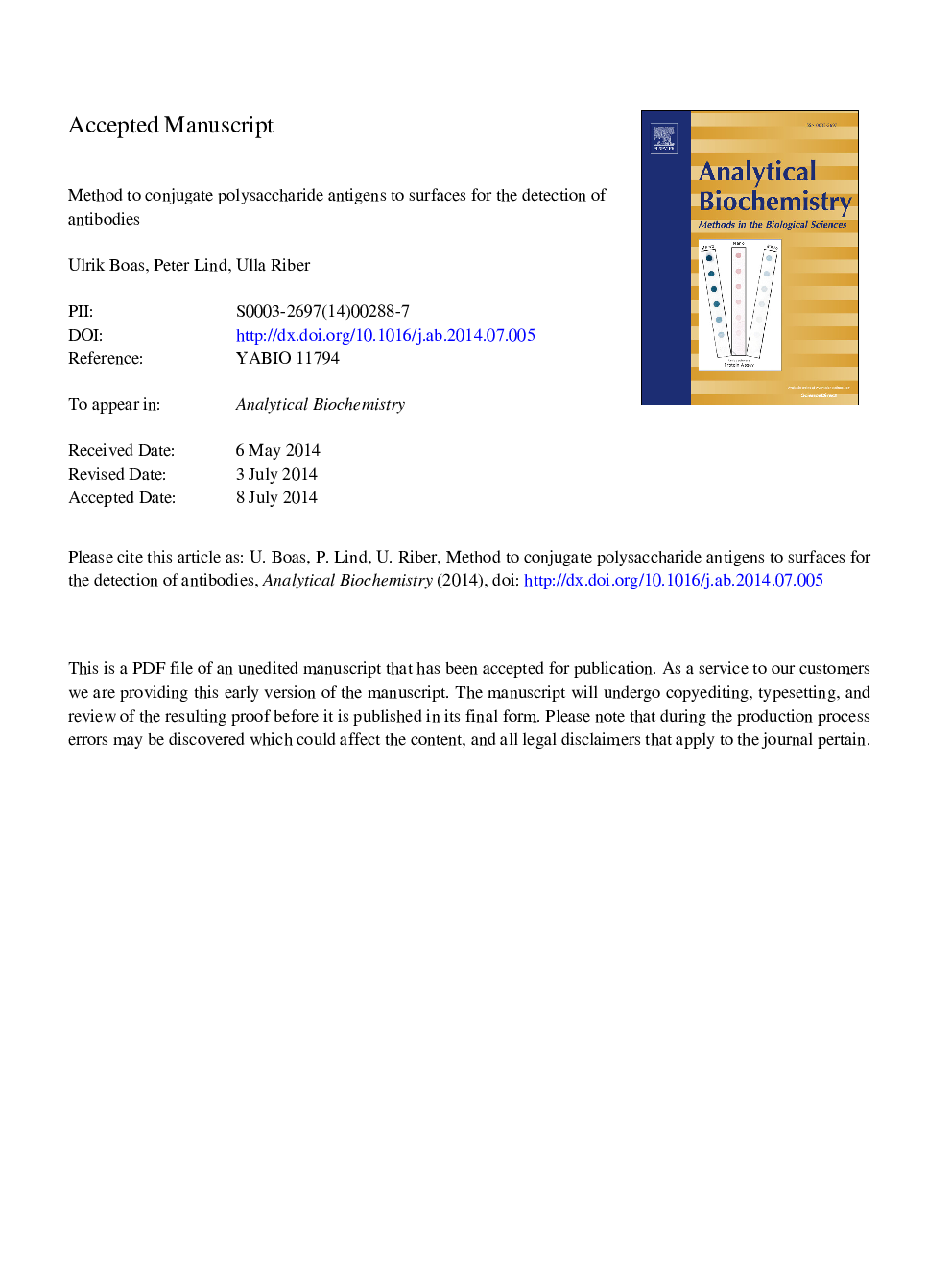| Article ID | Journal | Published Year | Pages | File Type |
|---|---|---|---|---|
| 7559027 | Analytical Biochemistry | 2014 | 35 Pages |
Abstract
A new generic method for the conjugation of lipopolysaccharide (LPS)-derived polysaccharide antigens from gram-negative bacteria has been developed using Salmonella as a model. After removal of lipid A from the LPS by mild acidolysis, the polysaccharide antigen was conjugated to polystyrene microbeads modified with N-alkyl hydroxylamine and N-alkyl-O-methyl hydroxylamine surface groups by incubation of antigen and beads for 16 h at 40 °C without the need for coupling agents. The efficiency of the new method was evaluated by flow cytometry in model samples and serum samples containing antibodies against Salmonella typhimurium and Salmonella dublin. The presented method was compared with a similar method for conjugation of Salmonella polysaccharide antigens to surfaces. Here, the new method showed higher antigen coupling efficiency by detecting low concentrations of antibodies. Furthermore, the polysaccharide-conjugated beads showed preserved bioactivity after 1 year of use.
Related Topics
Physical Sciences and Engineering
Chemistry
Analytical Chemistry
Authors
Ulrik Boas, Peter Lind, Ulla Riber,
